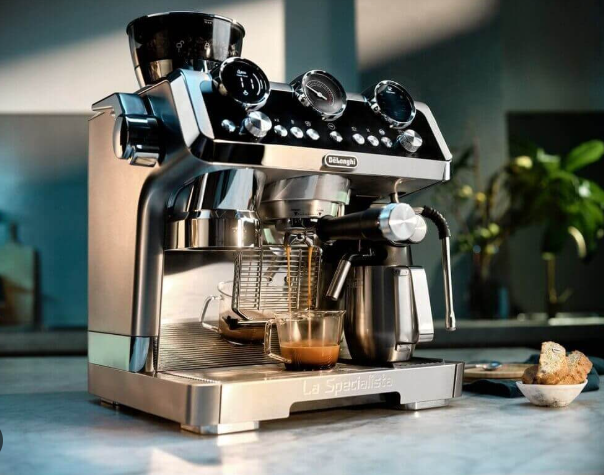
If you are a coffee lover, the home coffee machine can make your coffee taste different from your regular drinking to extreme intensity that you have never imagined before. You might enjoy rich espresso, smooth drip or frothy cappuccino take your pick, but whatever you love finding the right machine will take your coffee to the next level.
Lets discuss how various coffee machine there are and how they work and you’ll be able to make an informed choice with so many choices.
Types of Coffee Machines
1. Drip Coffee Makers
Almost everywhere you see drip coffee makers, the good cook grinds, the less good cook presses the plunger, the very good cook makes a paste of the grounds undissolved, then leaves the plunger off for that long until the day the coffee pot is broken. The way they make it is they heat the water, then drip it over ground coffee very slowly and it comes out balanced and consistent. Great coffee machines for people who want a time honored cup of coffee without all the inconvenience of the brewing art.
2. Espresso Machines
Due to the steep prices of drip coffee machines and the fact that lovers of bold, concentrated coffee love their espresso machine not so much, an espresso machine is a great option for a fraction of the price. These machines are hot water battered through finely ground coffee at very high pressure creating a rich and creamy espresso. Other models come with built in steam wands so it’s easy to make lattes and cappuccinos at home.
3. French Press
French press brewing allows you to do it the old fashioned way, by hand. It’s just ground, folded up in hot water and then muscled down a metal filter. Brewed in this way, it gives off a full flavored, strong smelling coffee, a favorite of those who prefer a more traditional brewing process.
4. Single-Serve Coffee Makers
Single serve coffee makers are great for convenience and even offer pre packaged pods or capsules which enable you to brew yourself a fresh cup of coffee in minutes. These machines really are very nice for someone who not only least wants to do any work, but also get results quickly but will not supply you with as much flavor as other brewing methods.
5. Moka Pot
A stovetop device called a Mokapot draws steam pressure that forces hot water over coffee grounds. This method is essentially brewing a strong, espresso like coffee, as they say in Italian homes. It’s a great option for those that love rich, full of flavor coffee, but don’t want to spend money on an expensive coffee machine.
The Perfect Cup of Coffee at Home: A Step-by-Step Guide
Start with High-Quality Beans
Choose the Right Coffee Beans:
Specialty beans from reliable roasters are the best to go for. If you are a connoisseur who likes to have his coffee from a certain region then you should check on single entity beans, however if you like it mixed, go for combinations, ensure you buy freshly roasted coffee.
Grind Just Before Brewing:
Coffee beans in their ground form begin to go stale as soon as they are ground so it is best to grind them right before brewing. Burr grinder is recommended to get the best grind size and the grind setting must correspond to the brewing type. French press require coarse grind, drip require medium grind while espresso require fine grind.
Measure Your Coffee and Water
Ratio:

An example of a standard ratio is that for every one gram of coffee, take fifteen grams of water. Depending on the size of the cup you’re making you would use about 5-7 grams of coffee per cup if making it with a tablespoon. The ratio can be adjusted according to preference; try this ratio as you see fit.
Water Temperature:
The ideal brewing temperature ranges from 195°F/90°C to 205°F/ 96°C. If the water is too hot it will begin to over extract the coffee leading to bitterness while if the water is too cold then it underextracts leading to weak sour coffee.




(0) comments
Welcome to the discussion.
Log In
Keep it Clean. Please avoid obscene, vulgar, lewd, racist or sexually-oriented language.
PLEASE TURN OFF YOUR CAPS LOCK.
Don't Threaten. Threats of harming another person will not be tolerated.
Be Truthful. Don't knowingly lie about anyone or anything.
Be Nice. No racism, sexism or any sort of -ism that is degrading to another person.
Be Proactive. Use the 'Report' link on each comment to let us know of abusive posts.
Share with Us. We'd love to hear eyewitness accounts, the history behind an article.